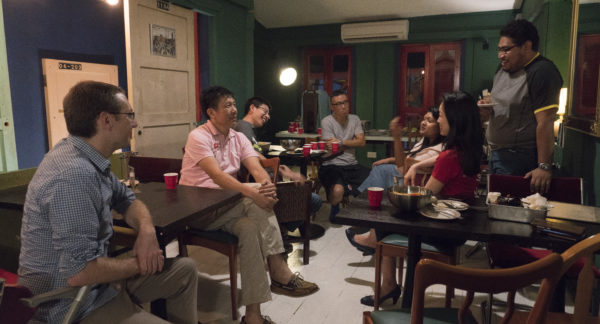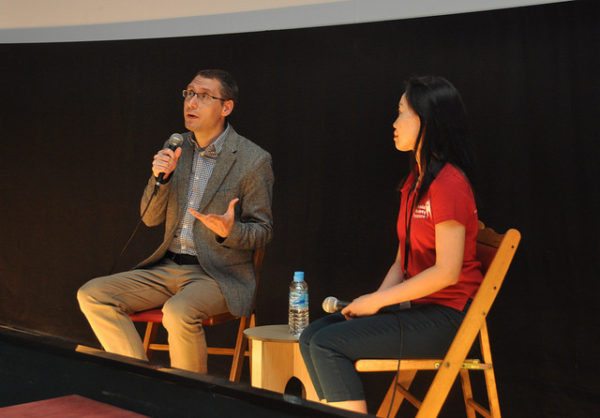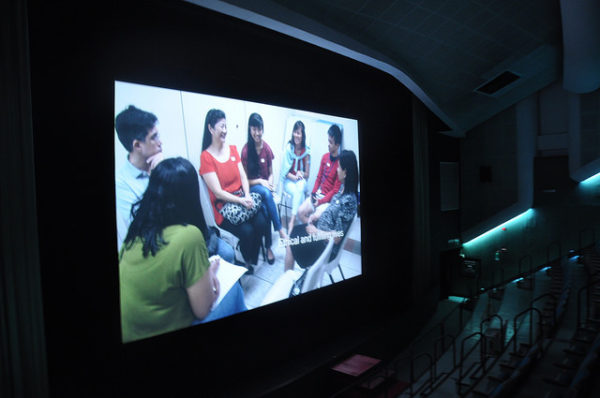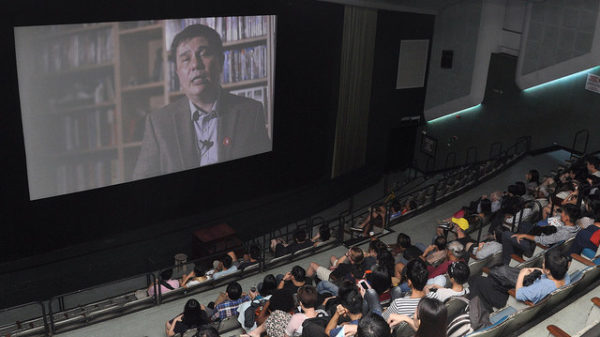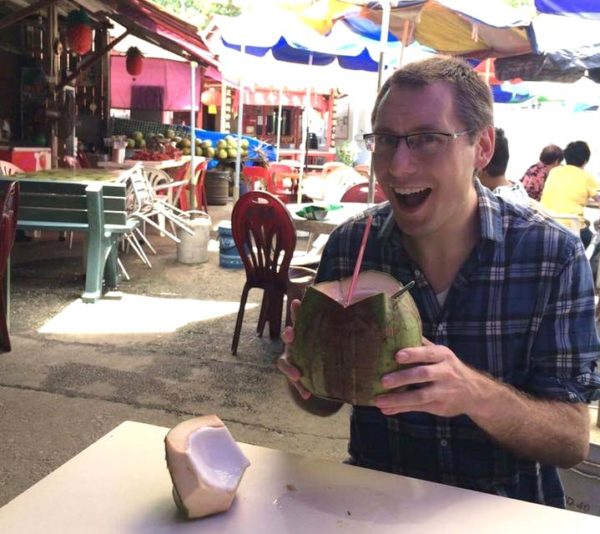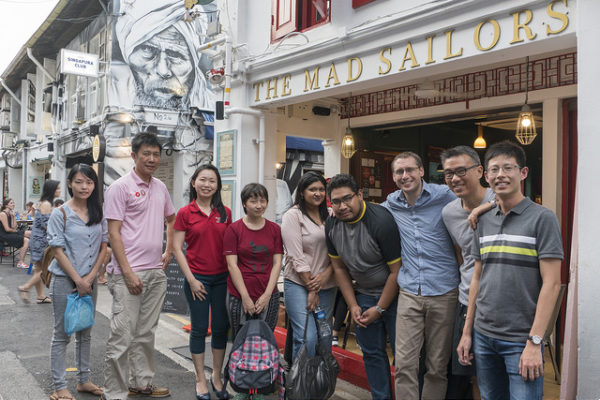This is a summary of the film director Chris Johnson’s visit to Singapore on Sept 16-17, where he took part in two separate screenings of “A Better Life: An Exploration of Joy & Meaning in a World Without God”.
Instead of just criticizing religion and the damage it does, the atheist movement should present meaningful alternatives such through the good lives they led and communities they built, according to ‘A Better Life’ film director Chris Johnson in Singapore last weekend.
While debating God’s existence is important, religious people are more likely to look for “social aspects” of religion such as community support rather than cosmological arguments, said Johnson, adding that the quest to find communities and meaning in life are universal traits that non-religious and religious people share.
Speaking at two ‘A Better Life’ screenings in Singapore on Sept 16-17, Johnson hopes his 90-minute film will help present such as alternatives, and improve understanding between religious and non-religious people. Crowdfunded and released in 2014, the film features non-religious people about how they found joy and meaning without God.
“I felt that we, as an atheist community, were not giving people alternatives to the things they were getting out of the religion,” said Johnson at a post-screening dialogue at the National University of Singapore (NUS), hosted by students from Tembusu College on Sept 16.
“We were spending all the time, for example, arguing why the Kalam cosmological argument for the existence of God fails. Very few people in the world believe in God because of the Kalam cosmological argument. People believe in God because they don’t want to die, because they don’t want their friends to die, because they want some kind of meaning in the world.”
Photos below: Chris Johnson responding to questions at the NUS screening. Taken by students from Tembusu College.
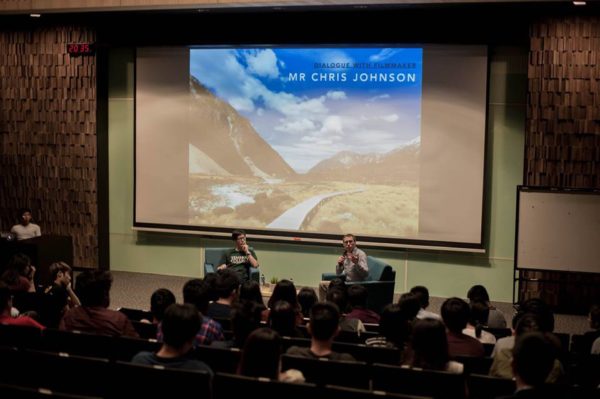
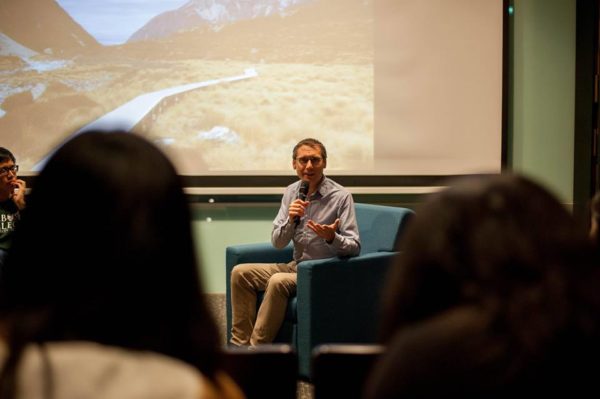
Johnson started raising funds for his film (and the accompanying book) in 2012 after observing that the “combative approach” to religious ideology by leading atheists were not winning much support. He subsequently spent more than two years travelling, photographing, editing and re-shooting, an experience he described as “long” but “extremely rewarding.”
He had since screened the film in the United States, Europe, South America, Australia and the Chinese cities of Hong Kong and Shanghai — where he conducted a QnA with a translator’s help.
The two Singapore screenings on Sept 16-17 were Johnson’s 76th and 77th screening to date. They were held at University Town by NUS students and at the Projector by the Humanist Society (Singapore), which provided the bulk of financing for Johnson’s visit. More than 200 people from all walks of life, including 75 NUS students, staff and alumni, watched the film and took part in three separate QnA sessions.
Questions raised by the audience include: 1) How atheists find meaning in life and decide what is moral, 2) dealing with aggressive anti-religious approaches by atheists, 3) differences between non-religious labels, 4) religious reception to his film and 5) the future of the atheist and other non-religious movements.
Photos below: Moments from the screening at the Projector
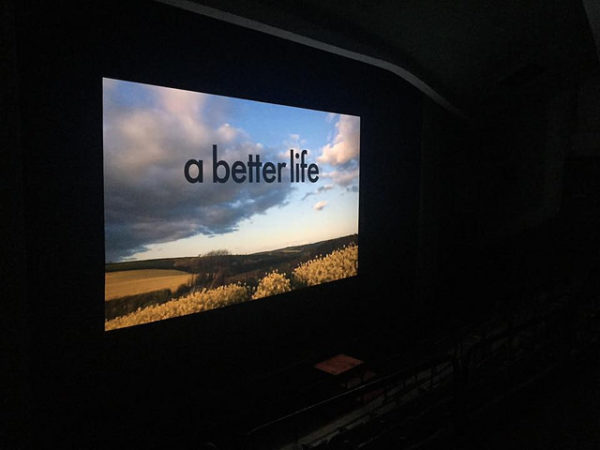
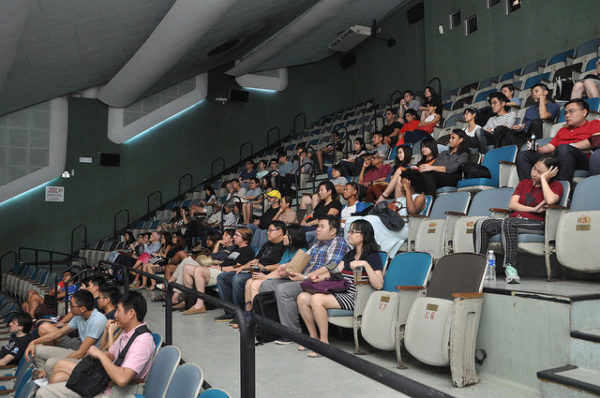
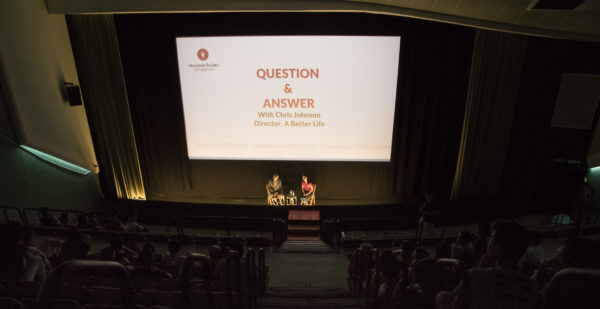
ATHEISTS NEED TO TALK TO EACH OTHER
Through the universal themes explored in his film, such as finding meaning in life and experiencing awe at natural wonders, Johnson wants atheists coping with difficult questions to know they are not alone. Realising that there is no God can be “scary” given the heavier personal responsibilities that atheists have to shoulder, Johnson said.
“It’s scary in one sense, because it makes you feel very responsible for everything. ‘Oh, well there is nobody pulling the strings. There is nobody flying the plane!’ At the same time, you have the responsibility and the opportunity to make changes. If people need help, you can’t rely on any supernatural entity to do that. It is up to you.” said Johnson.
On how atheists should deal with difficult experiences, such as personal crises that “happened for no reason”, Johnson said these situations are tough for atheists because there are “no silver linings” and no satisfying answers. Thus, he wanted ‘A Better Life’ to show the importance of living for the moment.
“It’s okay to be sad. Nothing wrong with wanting to feel the emotion, the process of mourning,” said Johnson. “But it’s also appreciating the time we have to get together… You need to appreciate things and be in the moment, appreciate the relationships you have, the family and friends you have, the good experiences.”
While the initial phase of becoming an atheist can be scary, what matters is how people “move on” by talking to other atheists about it, said Johnson. “We can talk about these things and get through it. Talk about how some things are terrible. The only thing that is going to make that better, is us talking to each other, because that’s all we have.”
Supporting local atheist communities is important and doing so doesn’t necessarily make atheism “another religion”, explained Johnson, in response to concerns from an audience member that there should be limits to how much atheists should organise themselves, lest they get trapped in the failings of organisations.
Any infighting is a natural process experienced by any group, whether they are non-profits, community groups or offices, he said. “That’s true for atheist groups, atheist personalities as well. Sometimes we get along, sometimes we don’t get along. That is just human nature,” said Johnson, adding that such problems can always be worked through.
Praising the local humanist group in Singapore as “fantastic”, Johnson said such local communities provide the groundwork to support people looking for non-religious alternatives. Thus, it is important that atheists keep supporting their events.
Photos below: The Humanist Society’s 3-minute corporate video was shown just before the main screening
A MULTI-PRONGED APPROACH
In order for atheist communities to thrive and speak their minds, it is also important the freedom of speech is protected. While there should be limits on the freedom to stop incitement of violence against minorities, Johnson felt that government intervention against critiques — detailed analysis and assessment — of religious ideas are not necessary.
While he earlier lamented the approach taken by the atheist movement in the past decade, Johnson allayed concerns from the audience that approaches by some atheists, such as the “four horsemen” speakers, are too militant and aggressive towards the religious.
Growing up in a generally non-religious family in Seattle, Johnson said he was inspired by many of the writings by these ‘horsemen’, Richard Dawkins, Christopher Hitchens, Daniel Dennett and in particular, Sam Harris.
Although he does not agree with everything they said, Johnson felt that these authors are “great for the most part”. Many people, including himself, have thought about life differently because of people like Sam Harris. Their words also need to be taken into context, such as who they are responding to.
Overall, Johnson felt there needs to be a “multi-pronged approach”. This meant creating a space for non-religious people, while at the same time trying to sell atheist alternatives to religious people.
Photo below: The White Sands National Monument in New Mexico that helped inspire Johnson to embark on ‘A Better Life’ film, and Johnson enjoying fresh coconut water in Singapore.
Scientology and Mormonism sells because it provides a community for people to deal with life’s big questions, said Johnson. Questions about God’s existence, on the other hand, are actually quite far down the list of reasons why people attend churches, mosques and temples, he added.
“I think it is important to sell how we see the world to other people,” said Johnson. “They have done studies on changing people’s minds, and people are far more likely to change their minds if instead of just attacking it, you provide an alternative.”
Making the film has been financially challenging for Johnson, who flew back to Australia for more screenings after the Singapore leg, held in between screenings at Down Under. At the NUS screening, there was a moment of laughter when Johnson recalled how an audience member noticed he had worn the same shoes both in the film and in person at the screenings.
“The best thing anybody said to me was at a screening at Florida: ‘I can tell you are not making a lot of money doing these screenings, because I’m noticing that you are wearing the same shoes here as you were in the film’,” recalled Johnson. “And it’s true! These are the same shoes! I was like, really, you noticed that in the film?”
During his stay here, Humanist Society (Singapore) volunteers treated Johnson to some delicious local food in Singapore, as well as quick trips to Pulau Ubin and Little India. We also held an afterparty for him at Haji Lane. The Society wishes him all the best with his upcoming screenings, and thanks him for the fresh perspectives he brought to the global humanist and atheist movement.
Photo below: Our afterparty with Johnson at Haji Lane.
